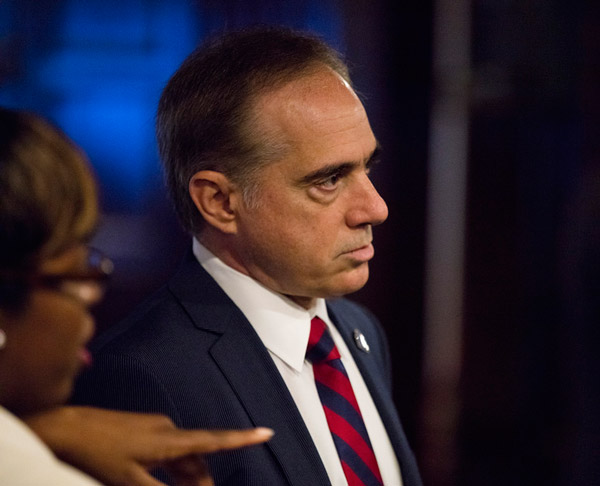Much was made during the election campaign over the failings of the Department of Veterans Affairs (“the VA”) to serve our Veterans effectively. While President-elect Trump had vowed to overhaul the VA, his selection of Dr. David Shulkin, an Obama administration holdover, as his nominee raises questions over what may change within the VA.
Indeed, the initial Senate confirmation hearings suggest a “love fest” according to Quil Lawrence of NPR. Found below is the complete Senate confirmation hearing of the VA secretary-nominee’s testimony to the Senate committee:
While a good deal of the confirmation hearing was an opportunity for Senators to showcase their “genuine” concern for Veterans and pontificate on the silly rumors of “privatizing the VA,” the hearing covered many of the same issues that continue to plague the VA.
Nevertheless, I am encouraged by some of the remarks by Dr. Shulkin at his confirmation hearing which are summarized below:
– Commitment to moving care into the community were it makes sense for the Veteran. Currently, some 31% of health services are provided by local communities compared to 21% when Dr. Shulkin joined the VA.
– Expand Choice Program to ensure that Veterans are able to seek care in their community.
– Work to eliminate disability claims backlog (already significantly reduced) and seek legislation to reform the “outdated appeals process.”
– Need to address “infrastructure issues” . . . and explore expansion of public/private partnerships rather that build medical centers that have “large cost overruns and take too long to build.”
The Veteran’s Choice Program (“the VCP”) is the result of the Veteran’s Choice Act that was enacted to address chronic wait times for Veterans seeking care at VA facilities. To a large extent, “the VCP” is the brainchild of Dr. Shulkin.
During the confirmation hearings, Dr. Shulkin agreed that the “mileage” requirement to access private medical services (currently 40 miles from a VA facility) shouldn’t be a deciding factor. In Dr. Shulkin’s opinion, wait times should be the determining criteria. Couldn’t agree more.
Furthermore, Dr. Shulkin acknowledged that there was far “too much bureaucratic” red tape involved when a Veteran received the green light to seek private care and the required VA approvals to actually receive it.
While praising the work ethic and dedication of nearly all VA employees, he admitted that he was frustrated by current legal constraints to shed the VA of a few bad apples. Perhaps, he should enlist the support of government labor leader, David Fox, to join him in helping streamline the VA for the benefit of Veterans.
With 314,000 employees and a VA budget of $180 billion (of which only $76 billion is discretionary), SFTT has long believed that the VA is “too big” to succeed in its mission to provide adequate and responsive care to Veterans in need.
The issue is not the “quality of care” provided by the VA, which according to a recent Rand Corporation study compares favorably with private institutions. The question remains, who gets access to these quality VA services and when?
During his confirmation hearing, Dr. Shulkin stated that only 61% of interviewed Veterans “trust” the VA (up from 41%). I am quite sure that as the new VA Secretary, Dr. Shulkin, will seek to improve trust levels among Veterans, but ease of access to urgent medical services – whether at the VA or private facilities – is critical.
Furthermore, Veterans should be provided with a wider range of choices in determining the type of treatment they feel is appropriate for their medical condition. Specifically, it is simply not acceptable that “gatekeepers” at the VA should determine ALL “eligible” treatment procedures.
Certainly, Dr. Shulkin appears to have the “right” temperament for the job, but in my opinion, far more is needed to turn around this largely non-responsive ship that is currently adrift and aloof from meeting the needs of Veterans.
ShareFEB
2017


About the Author:
Vietnam vintage US Army officer who honors the brave men and women who serve our country.